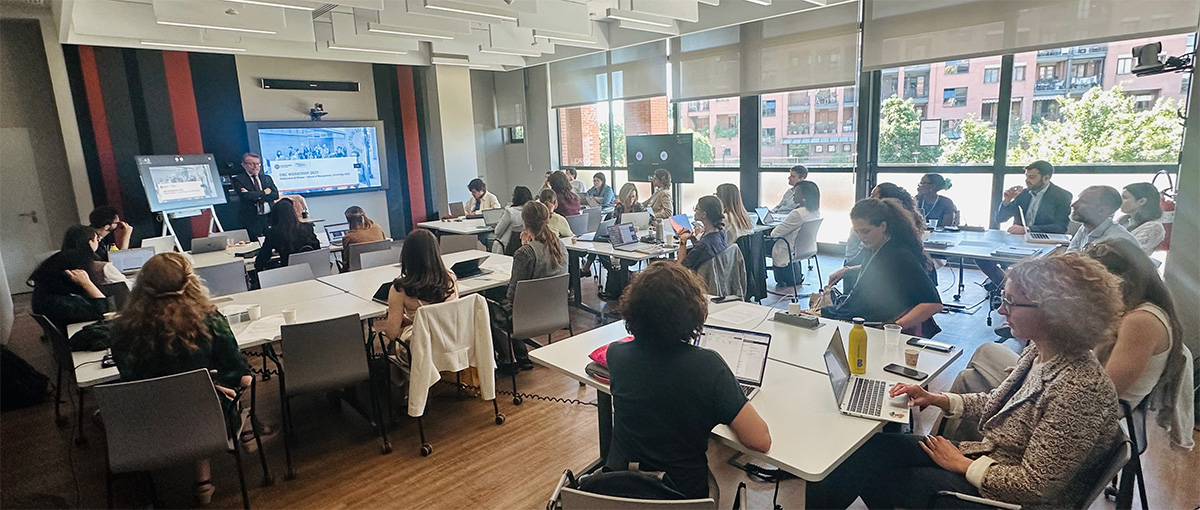OBC workshop
Research, impact and collaboration: an international debate on Outcomes-Based Contracts at POLIMI School of Management

How to rethink the design and financing of public services to address complex challenges such as health, education or urban regeneration? At POLIMI School of Management, a workshop dedicated to Outcomes-Based Contracts (OBCs) sought to answer this question.
On May 29–30 2025, the POLIMI School of Management of the Politecnico di Milano hosted the Outcomes-Based Contracts Workshop, an international event that brought together over 30 academics and practitioners from all over Europe – and beyond. The workshop was organised by the TIRESIA research centre and focused on the potential of Outcomes-Based Contracts (OBCs) to enhance effectiveness, innovation, and social impact in public policy management. OBCs are a contractual mechanism that ties funding to long-term outcomes, shifting the focus from outputs to actual, measurable results over time.
Partnerships between diverse actors are increasingly being studied as mechanisms for implementing strategies aimed at addressing global grand challenges, as outlined in the 2030 Agenda (SDG 17). In this context, Outcome-Based Contracts (OBCs), including Social Impact Bonds (SIBs) and Pay-for-Success (PFS) initiatives, have emerged as innovative forms of partnerships between public and private sectors with the purpose of tackling these wicked problems. These contracts are designed to drive reforms in public services by coordinating funding, management, and provision of public services. By linking financial resources to performance outcomes, OBCs place the evaluation of both performance and public value generation at the centre of stakeholder negotiations.
The Outcomes-Based Contracts Workshop was a clear sign of growing interest in these themes. Throughout the sessions, theoretical and methodological contributions explored the different perspectives of the actors involved: from the role of private companies in sustainability, to hybrid logics in investment processes, to the analysis of social impact and the most effective contractual mechanisms. Particular attention was paid to the role of public administrations as orchestrators of social innovation ecosystems, highlighting how OBCs can enable new forms of participatory and territorial governance.
Over the two-day workshop, participants shared case studies and empirical research illustrating how OBCs can improve the accountability and efficiency of public services. A wide range of experiences were presented, spanning diverse contexts—from the UK and South Africa to Italy and Ghana. Notable examples included the Education Outcomes Fund, active in several African countries to improve access to and quality of pre-school education, and the Italian pilot project TOUCH, aimed at activating a regional outcome fund to fight youth drop-out.
The event provided an important opportunity to consolidate an international network of research and practice, share emerging experiences, and reflect on new ways of collaboration between the public, private and third sectors to generate social value. The workshop confirmed how urgent – and possible – it is to innovate public policy funding and management mechanisms, focusing on results and impact for people.





